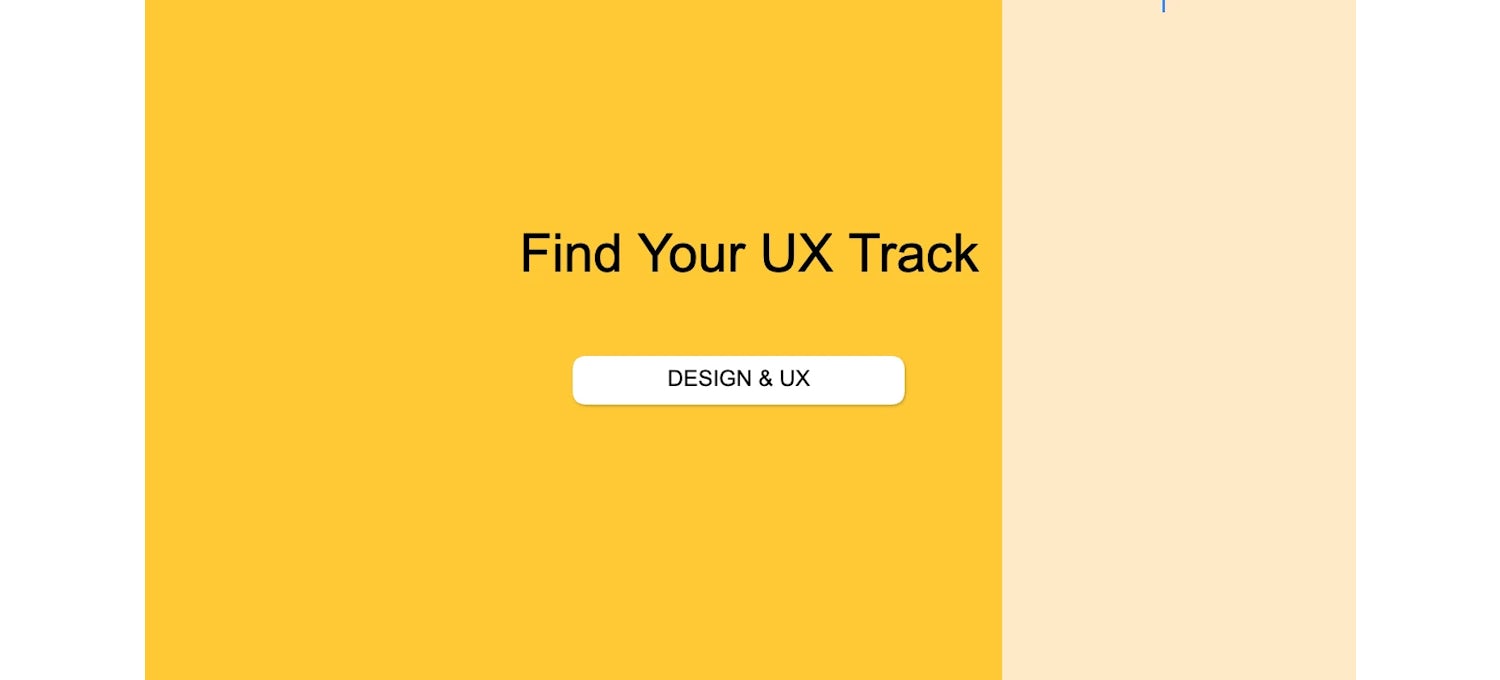UX Career Paths: Explore Roles & Specializations
Learn how to build a career in UX design, including key skills, role types, salary expectations, and future growth potential. This guide outlines diverse entry points into the user experience career path, whether you’re starting fresh or changing fields.

Is a UX career right for you?
User experience (UX) has evolved from simple usability testing to a comprehensive field combining psychology, design, and technology. Whether you're passionate about user research, interaction design, or product strategy, there's a UX path that matches your interests.
Begin with the self-discovery questions, then explore the certifications and courses for your chosen path.
Self-discovery questions
Take a moment to reflect on your unique skills and interests by considering these questions. With these answers in mind, you'll better understand which of the project management roles outlined here may best fit you.
Your empathy and analysis
Do you enjoy understanding how people think and behave?
Are you interested in solving user problems?
Do you like combining data with human insights?
Are you passionate about making products more usable?
Your design thinking
Can you balance creativity with functionality?
Do you enjoy iterative improvement?
Are you comfortable with user feedback?
How do you feel about combining research with design?
Exploring your UX career path
UX careers encompass many different roles, from technical to creative. Each position requires unique, essential skills.
The table below defines several key UX career tracks and their specific focus areas. Review the options below to find the path that aligns with your passions and expertise. Then, continue to the career map for a closer look at titles and key skills.
| Career track | Most suitable for |
|---|---|
| The UX Researcher | Analytical minds who love understanding user behavior |
| The UX Designer | Creative problem-solvers who love designing solutions |
| The Product Designer | Strategic thinkers who love end-to-end product design |
Use this map to explore the different career tracks outlined above in more detail, including the key skills you'll need to pursue each role.

Click to zoom
The UX Researcher
Perfect for: Analytical minds who love understanding user behavior
What you'll do:
Conduct user interviews
Run usability tests
Create user personas
Analyze user data
Present research findings
Key skills to develop:
Research methods
Interview techniques
User psychology
Research synthesis
Career progression:
Junior UX Researcher
Senior UX Researcher
Research Director
Recommended Courses:
User Experience Research and Design Specialization by Michigan
UX Research at Scale: Surveys, Analytics, Online Testing by Michigan
The UX Designer
Perfect for: Creative problem-solvers who love designing solutions
What you'll do:
Create wireframes
Design prototypes
Develop user flows
Define interactions
Test design solutions
Key skills to develop:
Career progression:
Junior UX Designer
Senior UX Designer
Design Director
Recommended Courses:
UX Design Professional Certificate by Google
UX Design Professional Certificate by Microsoft
UI/UX Design Specialization by CalArts
Principles of UX/UX Design by Meta
The Product Designer
Perfect for: Strategic thinkers who love end-to-end product design
What you'll do:
Define product strategy
Create design systems
Lead design sprints
Manage stakeholders
Drive product vision
Key skills to develop:
Product thinking
Design systems
Business acumen
Career progression:
Junior Product Designer
Senior Product Designer
Head of Product Design
Recommended Courses:
Making your choice
Your UX journey is unique. Choose a path that matches your strengths while offering opportunities to grow. The field rewards both specialists and generalists who put users first.
Consider your starting point
Do you have a background that already aligns or transfers well into a career in project management?
Psychology Background: UX Research leverages your analytical skills
Design Background: UX Design builds on your creative abilities
Business Background: Product Design uses your strategic thinking
New to UX: Start with fundamentals in any path
Think about your future
It's important to consider both the industry you'd like to work in and the type of work environment that suits you best. Explore the following options and consider which ones align with your preferences.
Industry Preference
The demand for specific roles can vary across industries. Understanding this can help you align your career with industry needs.
UX Researcher → Tech companies, research agencies
UX Designer → Design agencies, product companies
Product Designer → Tech startups, enterprise
Work Environment
UX roles exist in many types of work environments. Understanding which scenario best suits your working style will help you identify where to focus your job applications.
Tech companies → Specialized roles
Agencies → Multiple projects
Startups → Broad responsibility
Enterprise → Complex systems
Taking the first step in UX
Ready to start your UX career journey? Here are a few first steps:
How to get started
Learn UX fundamentals.
Master key design tools.
Build a portfolio.
Practice user-centered thinking.
Continuous career growth
Remember that user experience is an evolving field. Successful UX professionals:
Stay user-focused.
Keep learning new methods.
Build case studies.
Network with peers.
Get started today with Coursera
If you're ready to begin your UX career journey, consider a professional certificate from Coursera, such as the Google UX Design Professional Certificate. In this program, you'll learn to apply foundational UX concepts, like user-centered design, accessibility, and equity-focused design. Learn at your own pace, no degree or experience required.
Frequently asked questions (FAQs)
While some roles benefit from coding knowledge, the user experience career path focuses more on design thinking, user research, and usability.
UX designers earn competitive salaries. A career in UX often includes high-paying roles, especially with experience in research, strategy, or product design. According to Glassdoor, the average base salary for UX designers in the US was $84,185 annually [1]. This is compared to $65,470, the mean annual salary across all occupations in the United States [2].
Coursera
Writer
Coursera is the global online learning platform that offers anyone, anywhere access to online course...
This content has been made available for informational purposes only. Learners are advised to conduct additional research to ensure that courses and other credentials pursued meet their personal, professional, and financial goals.
